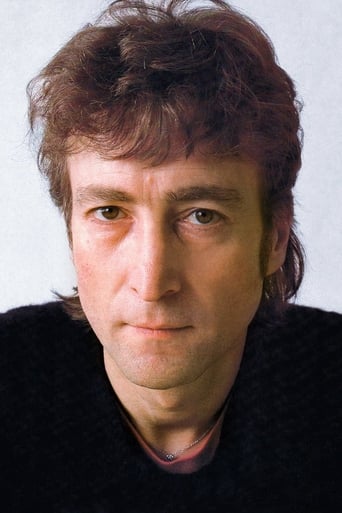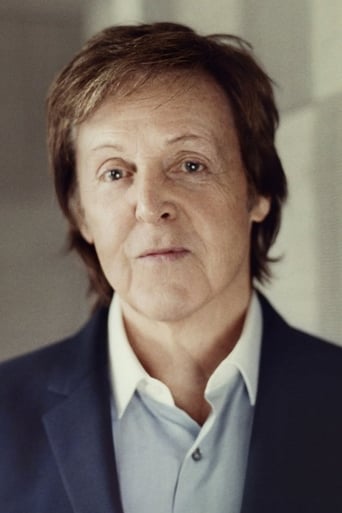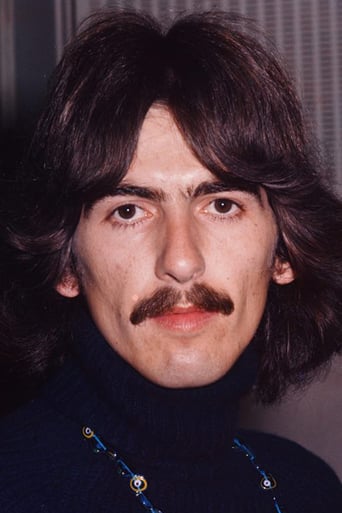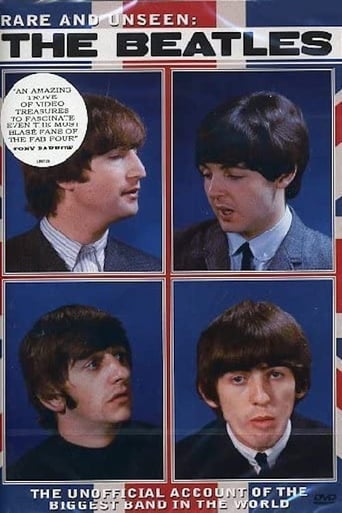
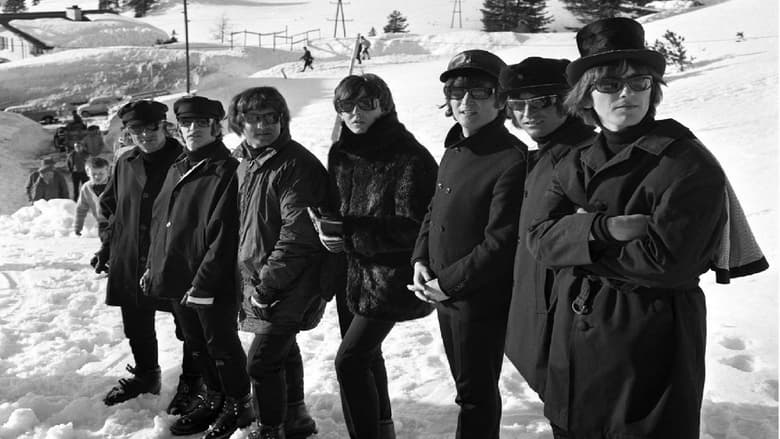
Rare and Unseen: The Beatles (2008)
The Beatles. Their story is told for the very first time using original rare film and video of the band, including home movies, concert footage, newsreels and photographs from private collections. There are also interviews with those who surrounded the band, and those who were there from the very start. Also included is an exclusive interview with fan and star in his own right, Phil Collins. For the first time we can see The Beatles relaxed, at play, on and off stage, on film and is a rare glimpse inside the lives of four musicians who shook the world.
Watch Trailer
Cast
Reviews
One of my all time favorites.
One of the most extraordinary films you will see this year. Take that as you want.
Like the great film, it's made with a great deal of visible affection both in front of and behind the camera.
The storyline feels a little thin and moth-eaten in parts but this sequel is plenty of fun.
The recent Ron Howard documentary, "The Beatles: Eight Days a Week" contained about ninety percent of material I had never seen before. This film, which I saw under the title "The Unseen Beatles", was closer to a hundred percent and offered a myriad of stills and home movie clips that weren't a part of the Howard treatment. By virtue of it's source material and the era from which it came, a lot of the picture is grainy and looks non-professionally photographed, which I guess is the point if you're talking about previously unseen material.The approach taken here is a bit unique as well. The narrative doesn't attempt to get into the history of the Beatles so much as it tries to track the disillusionment that came with fame and fortune, but with a distinct lack of privacy. In the span of two years, John, Paul, George and Ringo became the most well known and identified people on the planet, bringing with it chaos, death threats, plane crashes, diplomatic wrangles and ultimately, severe disillusionment. George was the first to vocalize his intent to quit the band, closely followed by John after their last performance at Candlestick Park in San Francisco on August 29th, 1966. No one realized at the time it would be their last live performance, and had it not been for a fan with a cine-camera at the event, there would have been no film footage of the event at all.Though there are brief clips of the Beatles doing interviews, the main principals on screen for this documentary were Beatles Press Officer Tony Barrow and their road manager Tony Bramwell. Journalist Larry Kane, who accompanied the Beatles on their third American tour also offers some insights. Their observations reinforced the idea that the performances the band gave revolutionized the music industry and inadvertently invented a new youth culture across the globe. Larry Kane made the point that fifteen minutes after the Candlestick Park show, an entirely new way of producing and promoting large scale concerts was born.Something rather bizarre struck me concerning the flap caused by John Lennon's remarks concerning the Beatles' popularity compared to Christianity. Everyone alive at the time had some thought about the controversy that ensued. The story here offered up the cover of 'DATEbook' magazine from the mid-Sixties, quoting John who stated "I don't know which will go first - rocknroll (the magazine's spelling) or Christianity". That's the comment that created such a stir back in the day, however right above it was a Paul McCartney quote - "It's a lousy country where anyone black is a dirty n.....". I shook my head over that one, as I wondered how the tables might be reversed if the comments were made today. Interesting to speculate.Oh yeah, there was one more quote on that DATEbook cover - Bob Dylan: "Message songs are a drag". I sure wish I had that magazine.
